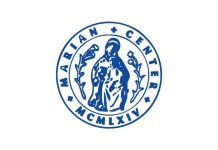|
Getting your Trinity Audio player ready...
|
With the beginning of the 2023-2024 school year comes the opportunity to discuss something non-Ron DeSantis-related. Instead, we fixate on the learning losses that we cannot change, further undermining what can – the transformation of education.
Nationally, COVID-19 exposed deep racial and economic inequities and long-ignored educational crises: the school-prison nexus, underfunding, and narrow, test-centric curriculum and teaching.
Our approach to learning continues to blame students, families, teachers, school leaders, and staff for failed policies and jeopardizing everyone’s well-being. While the pandemic presented cataclysmic challenges, our educational system has also responded in ways that exacerbate many racial, economic, and gender injustices that have always plagued it.
DOING WHAT MATTERS MOST
The focus should have been and should be on systemic change. This requires prioritizing parents/caregivers, communities of color, and educators as full partners and leaders in deciding what that change will look like and moving beyond top-down reforms that reproduce the inequities they were meant to address. Systemic change also requires questioning harmful beliefs about how young people learn and grow.
First, we must recognize that learning doesn’t only happen in schools; learning happens all the time and everywhere. When schools shut, various media outlets and think tanks warned of “learning loss,” arguing that students (especially those without access to private “pods” and reliable technology) could “fall irreparably behind. “
“Learning loss” suggests that physical presence in schools is the only path to education and well-being, yet many countries provide families with direct economic support. Although “learning loss” was expressed as a concern for youth of color, youth grappling with poverty and homelessness, disabled youth, and those with learning differences, it often serves as a dog whistle for white entitlement.
Learning loss ignored how our social policies created racial, economic, and educational inequities and sustained the conditions in which they persist.
A FLAWED FRAMEWORK
The frame of “learning loss” also highlights the flawed belief that learning is tightly bound to instructional minutes and synonymous with grading and testing. Yet meaningful learning is rarely “lost.”
The imposed fear of falling behind on content delivery puts educators in an untenable position and inserts a reductive version of school in the home. While not every home is a safe haven, families are now witnessing both the beneficial and harmful aspects of schooling up close, creating new conditions for advocacy and partnership.
Educators, parents and learning scientists know that families hold valuable knowledge and have a deep understanding of their children’s intellectual histories and lives. This stance is a better guide to educational policy and practice.
We are not “losing a generation of students” — a storyline seeded by media and repeated without question, showing how well-practiced we are at speaking for, rather than, with families and youth.
NOT ACCEPTED
We are failing students and educators by continuing to define learning through narrow tasks and standards while the world is on fire with creative thinking. This approach is blatantly unhealthy. Redefining the purposes and practices of education toward meaningful learning and well-being requires refusing the idea of “learning loss.”
Second, authentic learning is rarely quiet, seated and controlled. It is messy, affective, embodied, participatory and interpersonal. Learning is a socially and culturally rooted, developmental process involving the whole person. Person-centered learning is not invested in controlling learners’ bodies and voices through punitive, ableist practices and policies.
Consider how the “inability” to sit in front of a screen for six hours has suddenly become a flaw of the child rather than a flawed approach. Pre-pandemic, less screen time was recommended, and working families’ technology practices were hotly debated.
FIGURING IT OUT
We must ask: What kinds of learning are needed to address our current crises and avoid future ones? Where does such learning need to happen, and with what types of collaborators and resources?
By treating youth and families as knowledgeable instructional partners, communities as learning spaces and resources, and educators as highly skilled human development professionals, we can reclaim learning as an embodied, cultural, relational and life-long process of growth and well-being.
Finally, children are often seen as empty vessels to fill with academic content rather than complete, agentive people we (adults) can think with and learn from. Such deficit thinking emphasizes what young people can’t do rather than what they can do with meaningful learning goals and support.
STARTING IN A HOLE
Deficit thinking also defines the ways of speaking and knowing of youth of color as problems rather than cultural-historical practices essential for ongoing, deep learning. Basing education on one way of saying and knowing undermines critical thinking and individual and collective well-being.
Systemic change requires that youth, families, and educators collectively serve as decision-makers and designers of educational possibility. It also requires confronting harmful myths about human learning and redefining the processes and purposes of education.
As we witness what pandemic-era schooling has further illuminated, what lessons will we heed? Will we embrace the complexity and diversity of young people’s brilliance and promise? What are we invested in, and what do we need to let go of to create our desired future?
This column is by Ritchie Lucas, Founder/CEO of the non-profit The Student Success Project. He can be reached by email at ritchie@studentsuccessproject.org and on Facebook as The Student Success Project.
ABOUT US:
For more Miami community news, look no further than Miami Community Newspapers. This Miami online group of newspapers covers a variety of topics about the local community and beyond. Miami’s Community Newspapers offers daily news, online resources, podcasts and other multimedia content to keep readers informed. With topics ranging from local news to community events, Miami’s Community Newspapers is the ideal source for staying up to date with the latest news and happenings in the area.
This family-owned media company publishes more than a dozen neighborhood publications, magazines, special sections on their websites, newsletters, as well as distributing them in print throughout Miami Dade County from Aventura, Sunny Isles Beach, Miami Beach, Coral Gables, Brickell, Coconut Grove, Pinecrest, South Miami, Kendall, Palmetto Bay, Cutler Bay and Homestead. Each online publication and print editions provide comprehensive coverage of local news, events, business updates, lifestyle features, and local initiatives within its respective community.
Additionally, the newspaper has exclusive Miami community podcasts, providing listeners with an in-depth look into Miami’s culture. Whether you’re looking for local Miami news, or podcasts, Miami’s Community Newspapers has you covered. For more information, be sure to check out: https://communitynewspapers.com.
If you have any questions, feel free to email Michael@communitynewspapers.com or Grant@communitynewspapers.com.





